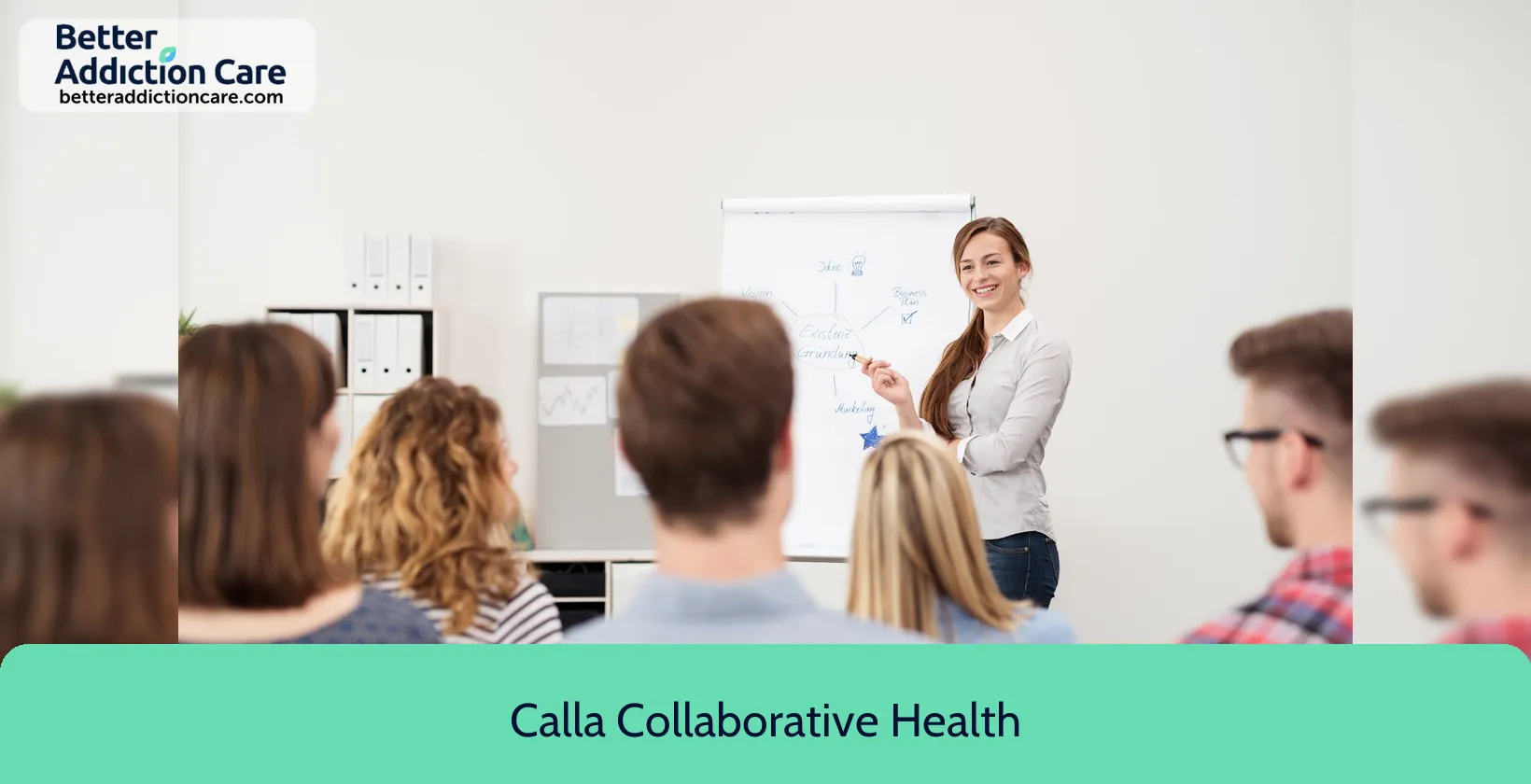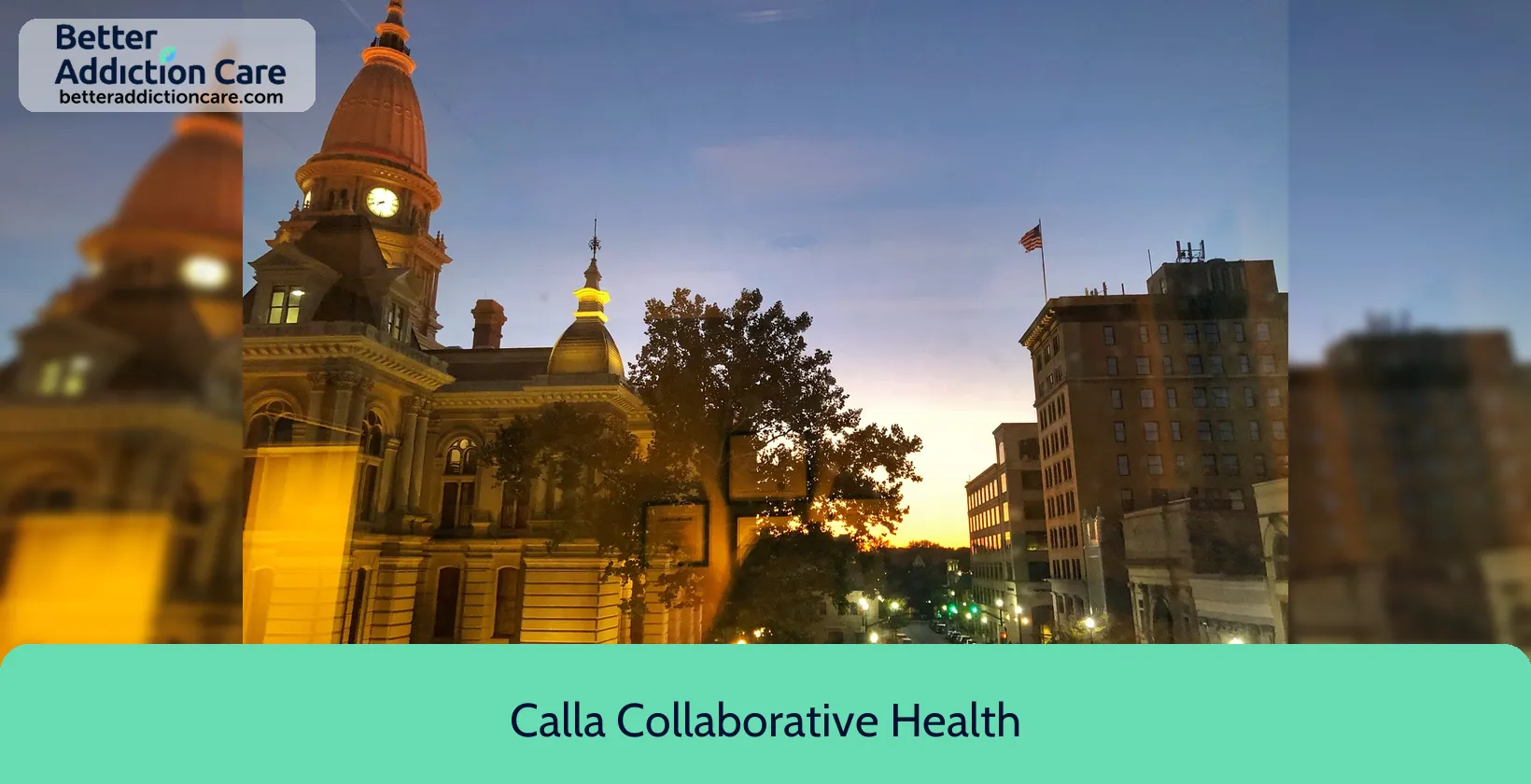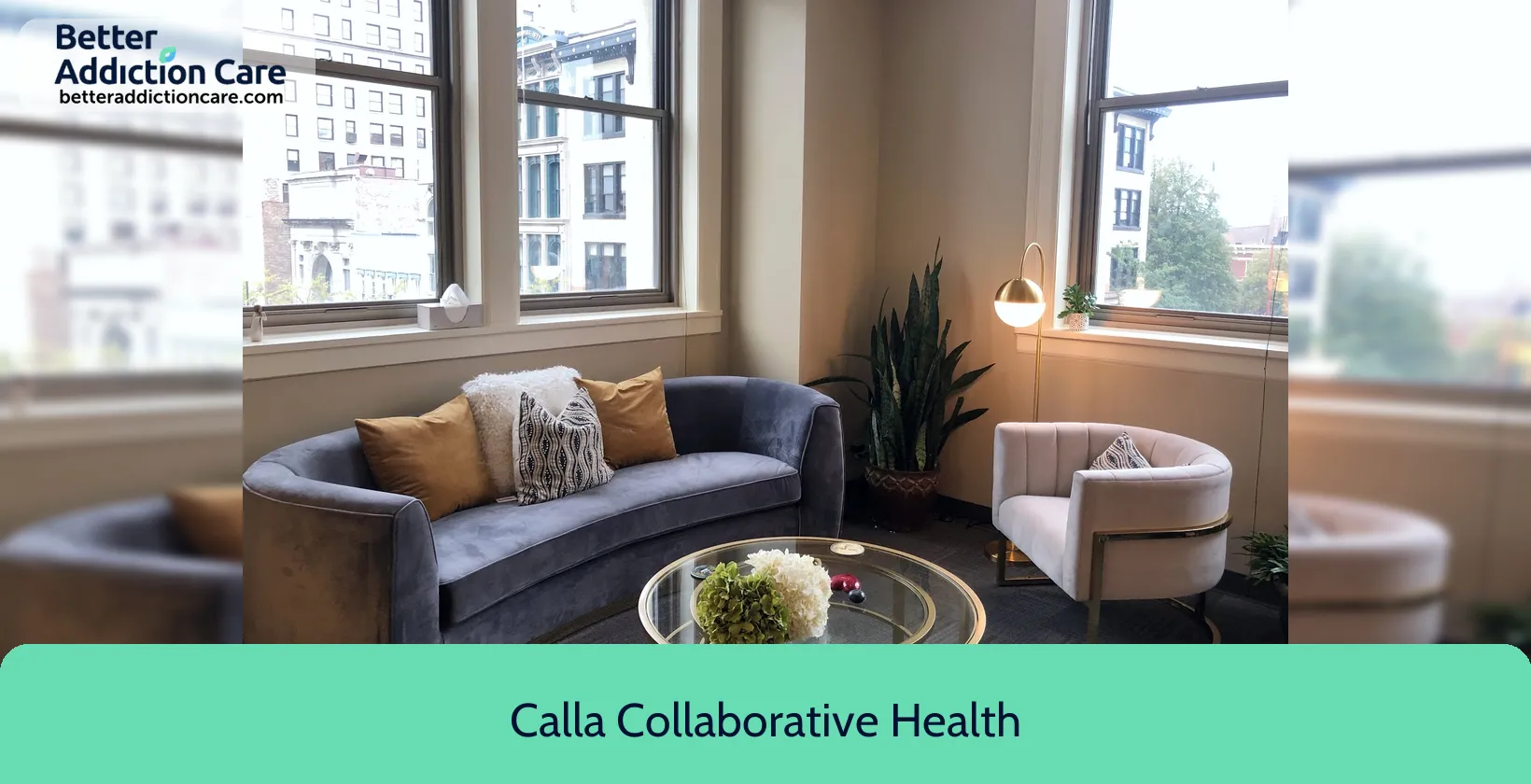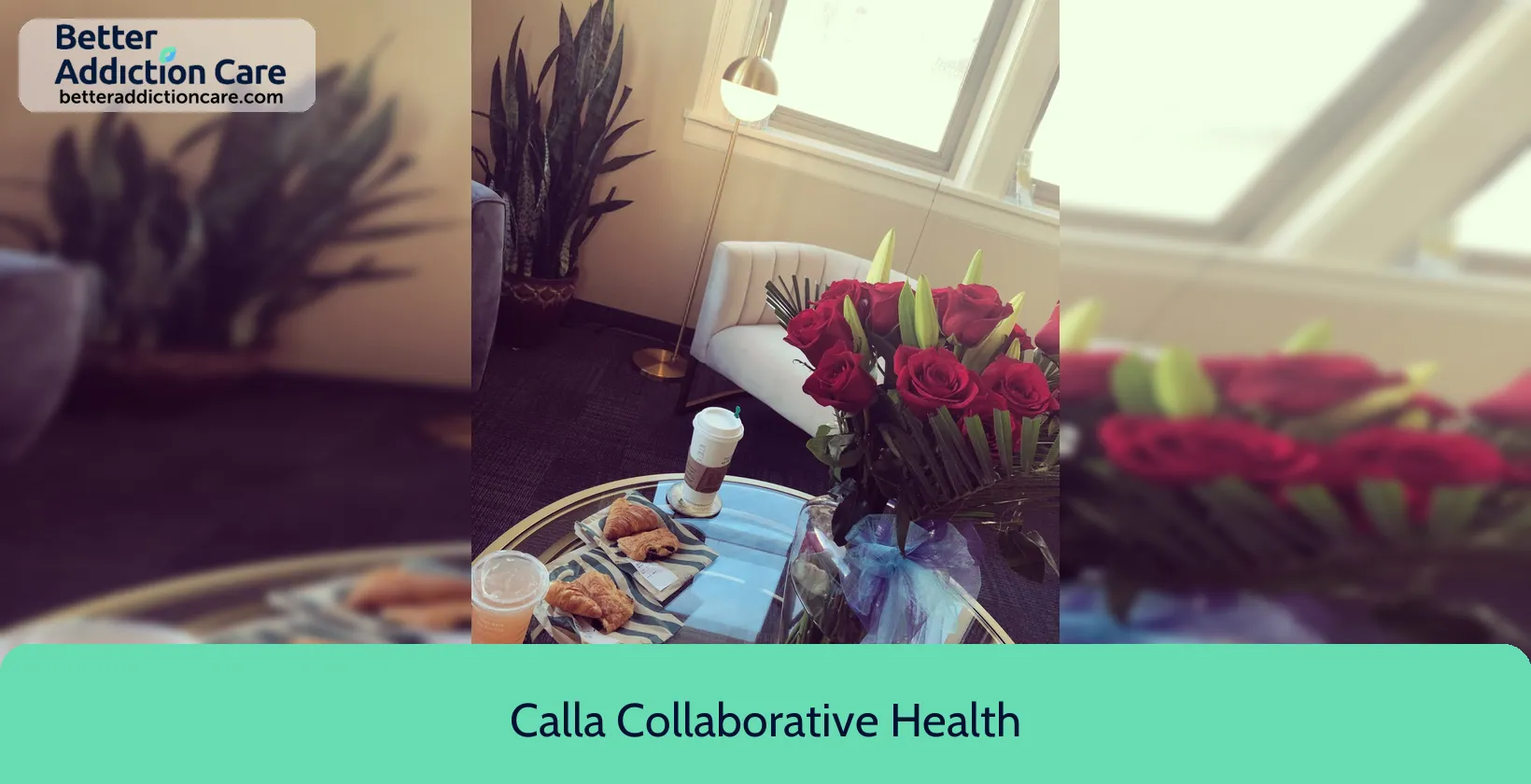Calla Collaborative Health
Overview
Calla Collaborative Health is an accredited substance abuse treatment center that provides outpatient treatment for men and women from 18+ years of age. As part of their special programs, Calla Collaborative Health treats criminal justice (other than dui/dwi)/forensic clients and clients who have experienced trauma. To help patients achieve sobriety, Calla Collaborative Health provides intake assessments. Afterward, patients receive cognitive behavioral therapy, telemedicine/telehealth therapy, and substance use disorder counseling during treatment. Calla Collaborative Health is located in Lafayette, Indiana, providing treatment for people in Tippecanoe County, accepting cash or self-payment, medicaid, and private health insurance.
Calla Collaborative Health at a Glance
Payment Options
- Cash or self-payment
- Medicaid
- Private health insurance
Assessments
- Screening for tobacco use
- Comprehensive mental health assessment
- Comprehensive substance use assessment
- Interim services for clients
- Outreach to persons in the community
Age Groups
- Adolescents
- Young adults
- Children/adolescents
- Seniors
Ancillary Services
- Case management service
- Specially designed program for DUI/DWI clients
- Mental health services
Highlights About Calla Collaborative Health
6.80/10
With an overall rating of 6.80/10, this facility has following balanced range of services. Alcohol Rehabilitation: 8.00/10, Drug Rehab and Detox: 6.00/10, Insurance and Payments: 6.00/10, Treatment Options: 7.21/10.-
Alcohol Rehabilitation 8.00
-
Treatment Options 7.21
-
Drug Rehab and Detox 6.00
-
Insurance and Payments 6.00
Accreditations
State mental health department:
State mental health department accreditation refers to the process of evaluating and certifying the quality and standards of a state's mental health department, ensuring that it provides high-quality services and meets specific criteria for mental health care. The accreditation process is performed by a third-party organization and helps to improve the overall care and treatment of individuals with mental health conditions.
Treatment At Calla Collaborative Health
Treatment Conditions
- Alcoholism
- Substance use treatment
Care Levels
- Outpatient
- Regular outpatient treatment
- Aftercare
Treatment Modalities
- Cognitive behavioral therapy
- Telemedicine/telehealth therapy
- Substance use disorder counseling
- Trauma-related counseling
- Group counseling
Ancillary Services
Special Programs
- Criminal justice (other than DUI/DWI)/Forensic clients
- Clients who have experienced trauma
Get Help Now
Common Questions About Calla Collaborative Health
Contact Information
Other Facilities in Lafayette

6.59

7.27

6.71

6.62

6.84

6.74

6.74
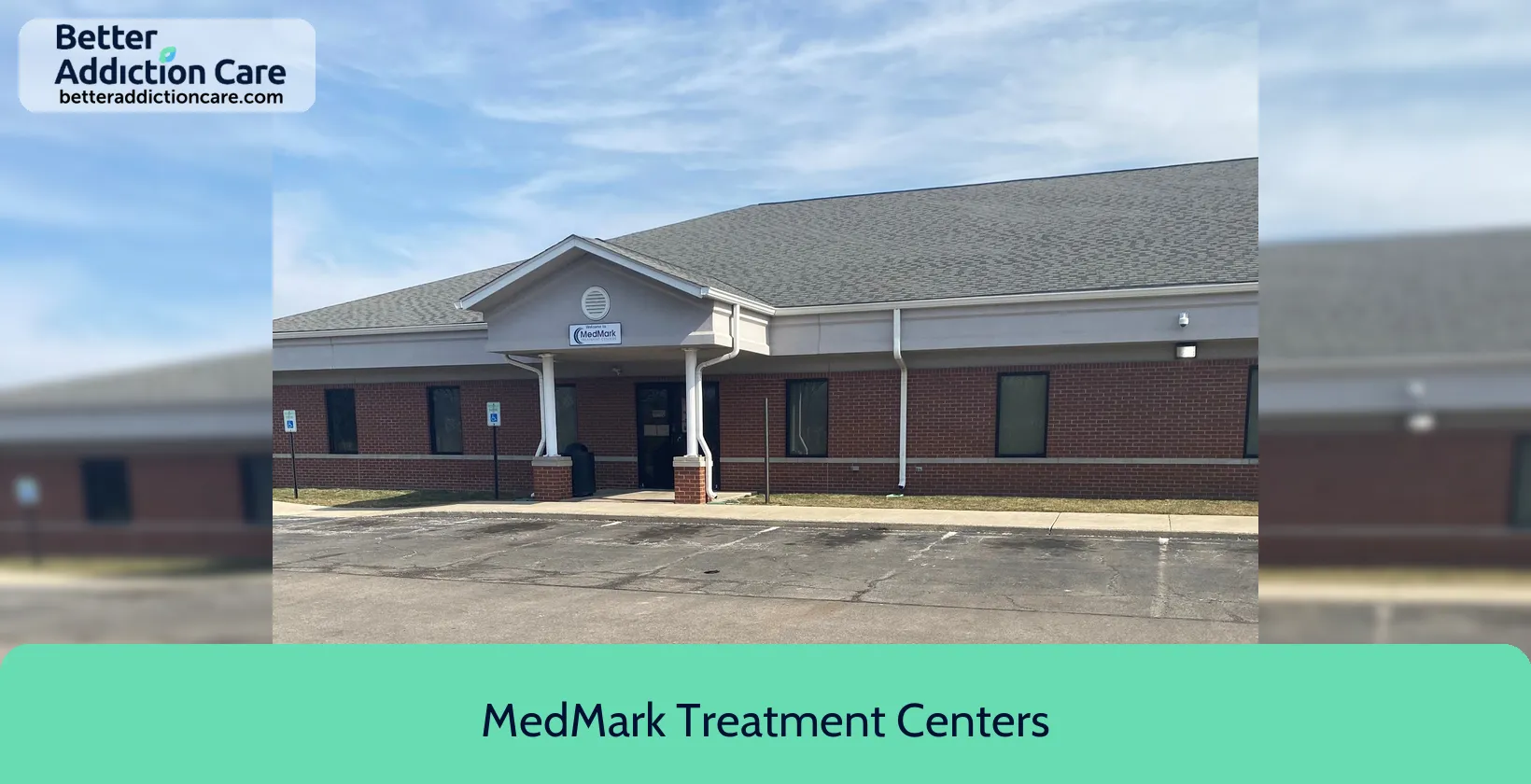
7.00
DISCLAIMER: The facility name, logo and brand are the property and registered trademarks of MedMark Treatment Centers, and are being used for identification and informational purposes only. Use of these names, logos and brands shall not imply endorsement. BetterAddictionCare.com is not affiliated with or sponsored by MedMark Treatment Centers.
